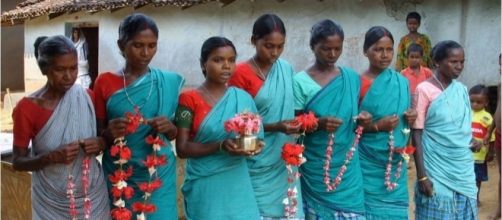A mob lynching of five women accused of witchcraft has left the people of Kajiya Maraytoli village outraged. The attack took place in the Indian state of Jharkhand and involved over 60 men from the village. Police managed to make 30 arrests, but another 30 men involved in the lynchings are still at large. Most have fled the area, leaving a majority of women in the small village.
The witch hunt
On August 5, 2015, five women in Kajiya Maraytoli were dragged from their homes and beaten to death by a group of approximately 60 male villagers. The women were accused of witchcraft and lynched in the middle of the night.
After two years of investigations, police have not been able to apprehend all of the suspects. However, the local women left in the village are ready to identify the suspects already in custody.
Usha Khalkha, 25, lost her mother-in-law to the mob lynching. She and her husband attempted to confront the crowd of enraged men, but they were unable to help.
According to witnesses, a teenage boy died a few days before the lynchings. He had been complaining of abdominal pain, and his parents took him to see a sorcerer. In a village of only 200 people, traveling to a hospital is often out of the equation. Locals look to healers and so-called "witches" for treatments and remedies. When the boy passed away, his parents pointed at witchcraft as the reason.
A history of violence
In 1996, Chootni Mahto, was accused of witchcraft, beaten by a mob, and left for dead. She was rescued by a passer-by and managed to recover from the attack. After her husband abandoned her, her brother provided her with a plot of land to build a hutment. For the last 20 years, Mahto used this hutment as a rescue center for women in the area. Mahto helped to raise awareness for a movement called the Superstition Elimination Mission, which has helped to rehabilitate over 200 women. This mission has been sponsored by the Free Legal Aid Committee since its conception in 1991. According to Mahto, the reason she was once accused of witchcraft was because of her financial status.
When her husband's parents passed away, the villagers blamed their deaths on her and attempted to murder her.
Making a change
Witch hunting is illegal in Jharkhand, but still occurs at an alarming rate. India’s National Crime Records Bureau states that approximately 2,000 people between 2000 and 2012 have been murdered due to accusations of witchcraft. The overwhelming majority of the victims were women.
In response to the number of suspects in these witch hunting cases, the Jharkhand government has set up a system of fast-track courts. This is meant to process the cases quickly and bring about swift justice. For women such as Mahto and Khalkha, raising awareness of this issue is a top priority.


